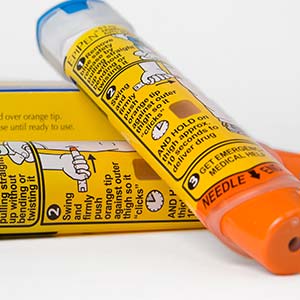Depending on where you live, spring can mean that flowers are blooming and pollen is in the air—or that the last gasp of winter is still keeping the weather chilly.
If you’re sick this time of year, it might be difficult to tell if it’s a run-of-the-mill common cold or seasonal allergy symptoms brought on by changes to the weather and environment.
We asked Dr. Howard Willson, former Department Chief of Emergency Medicine at Swedish Medical Center in Seattle, to weigh in on how to tell the difference and why it matters.
How can I tell if I’m experiencing a cold or allergies?
Your body responds to colds and allergies in very different ways, and each condition requires a different approach to fixing it.
Seasonal allergy symptoms appear immediately after contact with allergy triggers like dust, pollen, trees, or grass.
Some allergic symptoms include:
- Runny or stuffy nose (mucus: clear, watery)
- Watery eyes
- Itchy eyes, ears, or throat
- Wheezing
- Sneezing
- An occasional or infrequent cough
Remember that with allergies, symptoms can be long-lasting depending on exposure to the allergic trigger. For example, trees that bloom in the spring will bloom the whole season and may trigger allergic reactions until summertime.
How can I tell if I have a cold?
With colds, symptoms take a few days to appear after contact with the virus. Look for the following:
- Runny or stuffy nose (mucus: often thick and yellow)
- Chills
- Sneezing
- Sore or scratchy throat
- Frequent cough
- Body aches and pain
- Fever (less common)
You should also look for these specific clues to determine whether you’re experiencing a cold or allergies:
- Fever vs. no fever. If you have a fever, you likely have a cold
- Body aches vs. nose or throat itching/irritation. Body aches and pain indicate a cold, while an itchy throat indicates an allergic reaction
- Chills all over your body vs. chills in one area. Chills all over indicate a cold, while isolated chills indicate allergies
What if I have more severe symptoms?
Are your symptoms lasting longer than 2-3 weeks? Is your fever or difficulty breathing getting more intense? Monitor your symptoms, and definitely speak to your doctor if they get worse
Sinus infections are not uncommon. Symptoms include fever, facial pressure, and thick, dark mucus. Also, keep an eye out for potential lung infections. Symptoms include fever, shortness of breath, and coughing up thick phlegm.
How should I treat my cold?
If you have a cold, you can only treat the symptoms until it clears up. Take over-the-counter decongestants and medications for fever while the virus works its way out of your system.
How should I treat seasonal allergy symptoms?
For allergies, take over-the-counter antihistamines. Remember that although medications like Zyrtec or Benadryl work very well, they also have side effects. So speak to your pharmacist about the best option for your situation.
Both colds and allergies are annoying, uncomfortable, and can get in the way of living your life. To get expert help on how to treat your symptoms, use services like your 24/7 nurse line, telehealth, and other programs that can provide treatment advice—without leaving the comfort of your home.

Dr. Willson is the former Department Chief of Emergency Medicine at Swedish Medical Center in Seattle. He received a BA from Dartmouth, an M.D. from the University of Illinois College of Medicine, and an MBA from Wharton.




